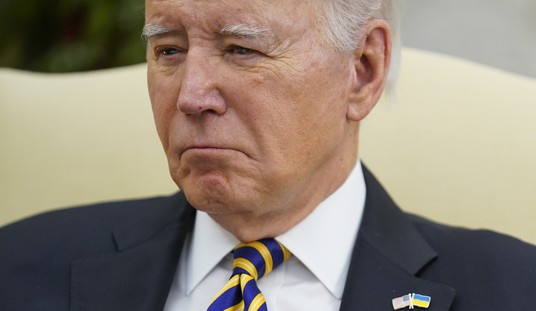It was standing room only at this morning’s Federal Election Commission hearing. The reason for the big box office: the query from Comedy Central’s Stephen Colbert about setting up a “superPAC.”
Colbert’s lawyers had requested an advisory opinion from the FEC on whether Colbert’s proposal was legal under applicable federal campaign finance laws. For months the comedian has used this request to lampoon and belittle the Supreme Court’s decision in the Citizens United case. In that decision, the court threw out the federal ban on political speech by corporations and unions.
Colbert is a comedian paid by a media corporation. Both he and Comedy Central are making a lot of money because of the First Amendment. It protects his right to satirize politicians and others. Yet apparently Colbert thinks First Amendment protections should not extend to other entities, like non-media corporations.
In other words, Colbert thinks the government should have the authority to censor political speech and decide who can speak. Of course, he doesn’t admit that but it is the logical result of his satiric criticism.
I spent two years as an FEC commissioner. Most of its hearings attract just a handful of attendees. Few receive any media coverage at all. But today the line to get in stretched for half a block beyond the doors of the FEC headquarters building, and inside the hearing room the cameras nearly outnumbered the audience.
While Colbert may have been joking about his superPAC, the FEC treated it as a real request for legal advice. In a five to one vote, the FEC approved his request, giving him the go-ahead to form a political action committee that can take unlimited contributions from the general public for the purpose of making independent expenditures. The FEC also said that, while coverage of the PAC by Comedy Central and its parent VIACOM would fall within the press exemption (and thus not be reportable political activity), if VIACOM produced advertisements for the PAC, the cost of those ads would have to be reported to the FEC as in-kind contributions.
Colbert was at the hearing but did not say much. His attorney, Trevor Potter, did the talking for him. Colbert’s reticence in a room full of cameras was perhaps the biggest surprise of the proceedings.
Colbert’s proposal was designed to make fun of the Supreme Court, but in the end, the joke was really on him. Through the FEC review process, he found out just how complicated the federal campaign finance laws are and just how expensive, confusing, and burdesome it is for anyone trying to navigate the Byzantine morass of laws and regulations governing campaigns for federal office.








Join the conversation as a VIP Member